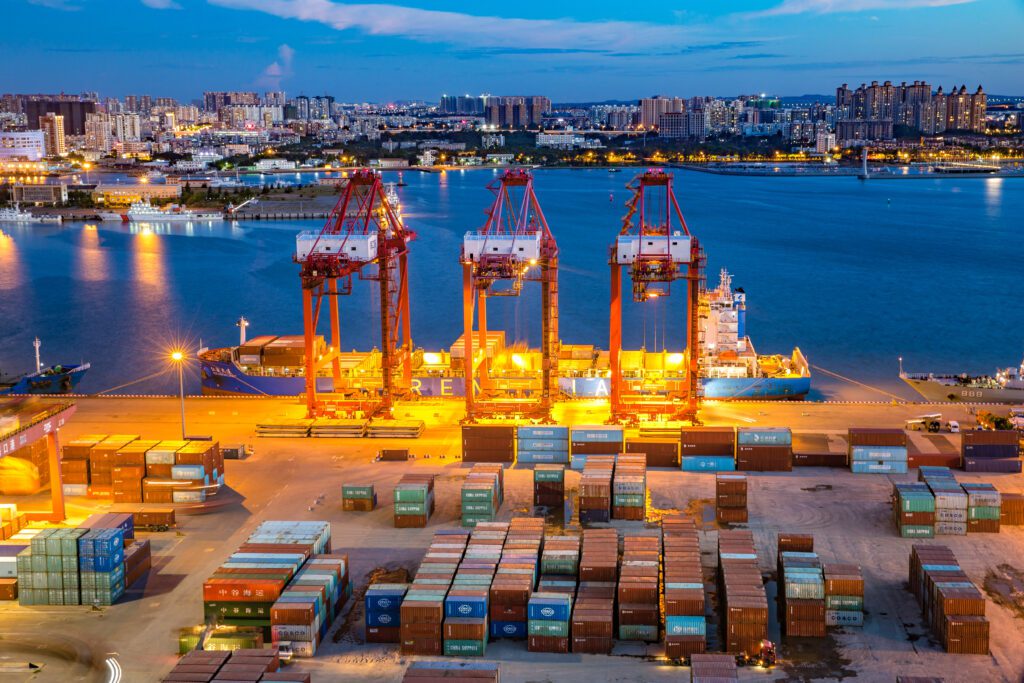Trump, the EU, trade deals and globalisation: Discussions about free trade are now more prevalent than ever in recent history, and dissecting the benefits or harms within an increasingly complex and polarised world feels impossible. Among all the chaos, it is now more important than ever to make an unapologetic defense of the principles of free exchange.
What is free trade? The phrase itself is often thrown around, and is used to describe things that aren’t exactly accurate. Free trade is, put simply, the free exchange of goods and services across countries and borders, without unnecessary restrictions.
In any market, competition is imperative. Businesses compete for customers, and those competitive pressures drive them to innovate.
Customers can make choices depending on the price, quality of the product, or a myriad of other factors, and businesses are rewarded for providing a good product or service.
Businesses that do not convince enough customers to make an exchange, fail. This competitive process drives innovation, expands choice for consumers, and ensures that resources are allocated efficiently.
The exact same principles are true of international trade.
Some countries can make things more cheaply than in other countries. Whether it is because they have lower labour costs, or because they naturally have more of a particular resource, or some other reason, trading with other countries often means we can access things that are made more cheaply, lowering the cost of living.
The real benefits of free exchange come when these exchanges are made, and when supply chains themselves are able to transcend borders.
In Leonard Reed’s infamous essay “I, Pencil”, he brilliantly explains the benefits of free exchange with a simple stationery tool.
A pencil, he explains, cannot be produced by one person. Whether it be the wood, the paint, the lead, or the rubber, all materials can be sourced from across the world and made into a pencil.
This is only possible because these goods can be traded across borders. There is no central commissar dictating where the materials are sourced from, where they are manufactured, or indeed, how much each worker is paid an hour.
It is the magic of free trade that these people, who come from different cultures and faiths and probably speak different languages, are able to come together and make something used every single day. A pencil.
“The lesson I have to teach is this: Leave all creative energies uninhibited. Merely organize society to act in harmony with this lesson. Let society’s legal apparatus remove all obstacles the best it can. Permit these creative know-hows freely to flow. Have faith that free men and women will respond to the Invisible Hand. This faith will be confirmed. I, Pencil, seemingly simple though I am, offer the miracle of my creation as testimony that this is a practical faith, as practical as the sun, the rain, a cedar tree, the good earth.” – Leonard Reed.
Unfortunately, politics often gets in the way. On 2nd April, US President Donald Trump announced huge swathes of tariffs, in a day he dubbed ‘liberation day’. It was far from a day of liberation.
Tariffs are simply additional taxes on imports, making trade more difficult and more expensive. Tariffs actively increase the cost of living for consumers, and that is exactly what Trump did.
The Trump administration fell for one of the most common misconceptions about international trade: That it only benefits a country when they are the exporter.
This could not be further from the truth.
One of the greatest benefits of free trade lies with the importing country, where consumers gain access to a huge range of goods, crucially, at lower prices. Simply put, if you want to reduce the cost of living, let foreigners sell you cheap stuff.
Whether it is clothes, food, mobile phones, medical supplies, or customer service, access to the global market reduces the cost of living and increases consumer choice, often alleviating poverty in the process.
It comes down to a very simple principle. No one person could produce everything he or she consumes. No family or household could do so either.
No city, town, or province could produce absolutely everything they consume. Equally, no country can produce everything it consumes, nor should it.
Attempts to achieve autarky are acts of economic self-harm. Freedom to exchange across borders is win-win: It allows consumers to access a plethora of goods and services, improving their overall welfare.
The economic theory behind these benefits is rooted in the work of Adam Smith, David Ricardo and John Stuart Mill.
Adam Smith, in his 1776 Wealth of Nations, emphasised the benefits of specialisation through the division of labour. Free tade improves welfare by allowing people to concentrate on whatever they can do best, meaning they become even better at it, and productivity increases. He used the example of the pin factory, where each worker is able to specialise in one particular stage of the manufacturing of pins.
David Ricardo took Adam Smith’s ideas even further. He showed that it is not even necessary for one particular country to have an absolute advantage to gain from free trade. Each country simply needs to focus on what they do best in comparison to others. They have a comparative advantage.
John Stuart Mill developed these ideas, and argued that an increased openness to free trade boosts productivity overall. For example, by allowing better equipment to be imported, allowing knowledge to be shared, and allowing for new competitive pressures.
Trade barriers, on the other hand, increase the cost of trade. Tariffs, quotas, and restrictions impose artificial costs on goods and services moving across borders.
In his first term, Trump’s tariffs on Chinese imports cost Americans over $800 per household on average. Tariffs create a lose-lose situation, in which consumers suffer by being forced to pay higher prices.
An April 2019, a University of Chicago study found that after the Trump administration imposed tariffs on washing machines, washer prices increased by $86 per unit and dryer prices increased by $92 per unit, ultimately resulting in an aggregate increase in consumer costs of over $1.5 billion. It’s not corporations that pay those costs, it is ordinary families.
Tariffs also reduce output. On the whole, aggregated data show that tariffs have significant adverse effects on GDP.
According to a 2020 study that looked at five decades of data from 151 countries, tariffs have a detrimental impact on economic growth.
The findings suggest that tariffs have a negative effect on output. This negative effect is larger for higher tariff increases and longer time periods.
All evidence points to the fact that trade barriers are bad for the economy, and bad for consumers.
In a world gripped by protectionist rhetoric and economic short-sightedness, one truth remains clear: Countries that embrace free trade will thrive.
Featured image via DreamArchitect / Shutterstock.


